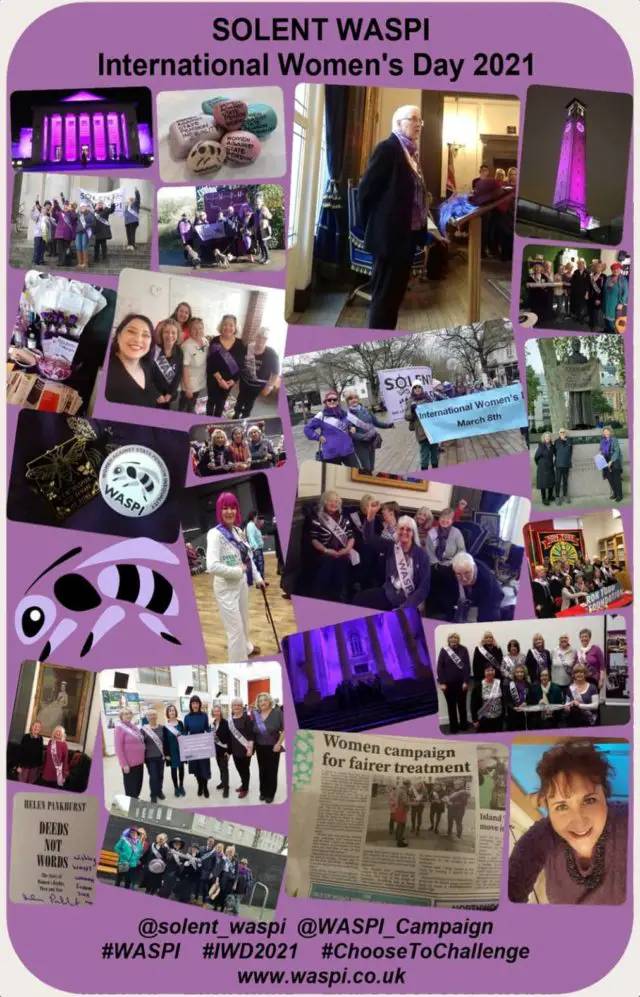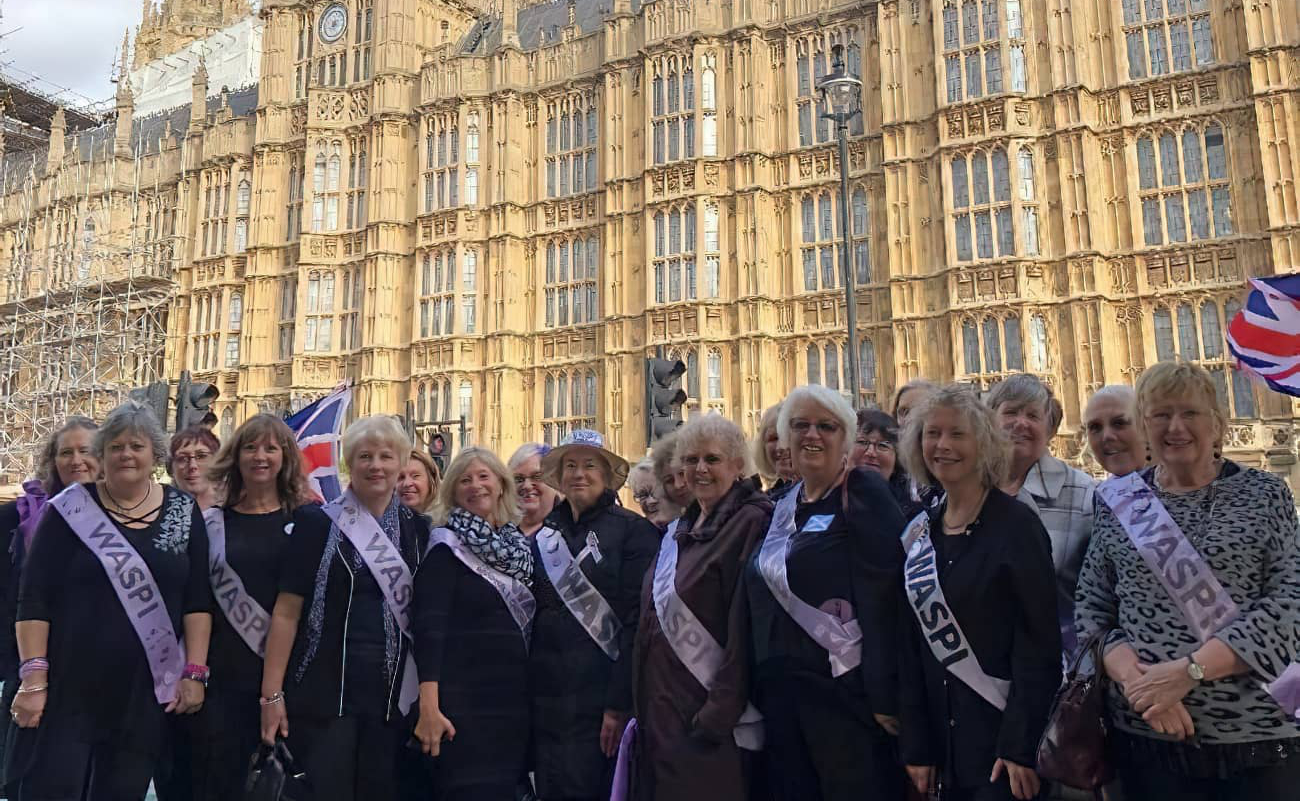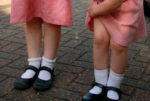Shelagh Simmons, Coordinator for Solent Women Against State Pension Inequality (WASPI) Supporters’ Group shares this latest news, in her own words. Ed
Today (8th March) is annual International Women’s Day and we would normally be out and about at events marking the occasion.
This year, of course, we are unable to do that due to the ongoing Covid-19 health emergency, but we are taking this opportunity to draw attention to the impact this crisis has had on older women like us.
Who are Solent WASPI?
Solent WASPI is part of the official Women Against State Pension Inequality (WASPI) Campaign, seeking justice for 1950s-born women who lost state pension entitlements with little, or no, notice.
We are a generation of women who have lived life in an environment of discrimination, so we welcome gains that have been made towards equality.
Grew up with inequality of opportunity
It is therefore deeply concerning that evidence suggests one impact of the Covid crisis is a rolling back of those gains – what some even suggest is a return to the 1950s, particularly when it comes to a disproportionate share of caring responsibilities.
We did not grow up in the 1950s, of course, but that is the decade when we came into the world. And we grew up with inequality of opportunity, beginning with education and continuing through to pay and pensions.
Personal experiences
Here are some examples of our personal experiences, in our own words:
“I was denied the possibility of studying technical drawing and taking exams in it, despite the fact I could already do it. I’d had thoughts of becoming an architect but our school policy, common back then, denied that to any female.”
“I wanted to do woodwork and metalwork but my school (which was a so-called comprehensive right next to a boys’ school) only offered needlework, cookery, music or art. We could do secretarial later as an option.”
“I’d made an earlier bid for freedom getting myself an apprenticeship as a corset maker/designer with Spensers, but my father wouldn’t sign the paperwork.”
“When I passed a Civil Service exam with flying colours I was invited for interview for the Diplomatic Service. I was 19 and they clearly made some assumptions. I was told I’d be relocated to London. When I asked if my Ministry of Defence employed husband would also be relocated, I was offered help to get a divorce so I could still take the post. Married men could take up positions, but women had to be single. I declined.”
“I wasn`t allowed to wear trousers in the office. Yet the employer was less concerned about women wearing very short skirts…..”
“As for work sexism, harassment etc, I could write a book, and probably will one day, if only for myself so I don’t forget everything.”
“I had my children in the 1980s. I experienced negativity and criticism from mainly female colleagues a generation older than me who had their families in the fifties or sixties. The older women who stayed at home to raise their children often did not return to work until their youngest was 10 or 11 and said that mothers should stay at home full time.”
“Like many mothers I felt guilty being at work. On the other hand, when I was a fulltime mother, I felt the lowly status of being ‘just a housewife’.”
“When I had my son in 1980, I went into work to see people and share my joy. The Manager called me into his office and asked me why I was planning to return to work rather than stay at home with the baby.”
“After having my daughter in 1993 I went to an interview for a part time teaching job and was asked was I planning to have another baby? This was prefaced by ‘I know I shouldn’t ask you this but…’ I was successful in getting this job only to discover after I started that there was no school contribution to the teachers’ Pension scheme!”
“In trying to do it all I constantly felt that I was not doing anything properly and felt guilty as a consequence.”
“I was a tracer in a drawing office. Every week a man would collect pension money from the men (draughtsmen). Me: ‘What are you collecting?’. Man: ‘It’s for private pensions, but you can’t join because you are female’. Then he walked away, paused, turned round and stated, ‘I don’t know why being female should stop you’. Me: ‘Neither do I’.”
“I can remember applying for a council office job and being turned down because ‘you could go off and do anything next week, get married and pregnant and leave’.”
“I got thrown out of the WRNS because I was pregnant (and married, I hasten to add) and had to leave as soon as I couldn’t get into my uniform. Working in civvies was not allowed. And once you were out, there was no opportunity to return after baby was born.”
“What used to drive me mad was people knocking on the door trying to sell kitchens/double glazing, etc. and asking if ‘the man of the house was in’. Nobody would deal with a woman.”
“The reason I was excluded from joining my occupational pension scheme was an example of indirect sexism. Part-timers were excluded from many public sector pensions until the 1990s. Women are more likely than men to be part-time.”
“I don’t object to getting my pension at the same age as men, but anyone who thinks women ever retired at 60 really hasn’t got a clue. We may have got our State Pension at 60 but we still carried on with all the unpaid work, caring for others and doing all the domestic chores. Much the same as we do now, except now we’re expected to stay in paid work too.”
“I wish women could throw off the burden of guilt. I would never judge or criticise my daughters or any young women for their choices and hope all generations of women can be united and tolerant of each other.”
Impacted by Covid
Many WASPI women have been forced to work longer than they planned, or expected, by State Pension age changes appallingly mismanaged by the Department for Work and Pensions.
Record numbers of older women have lost their jobs during the pandemic, with record numbers of those over 65 also becoming insolvent or bankrupt.
Compelling evidence shared with Parliamentary committee
In a job market still rife with ageism, they have little chance of finding other work. WASPI has submitted compelling evidence to a number of influential parliamentary committees, including the Women and Equalities Select Committee.
Yet our age group was inexplicably absent from that Committee’s recent report on the impact of Covid-19 for women.
What is it about older women that makes us invisible, seemingly even to those who are meant to be looking out for our interests?
Trolled for age and appearance
Professor Mary Beard has recently spoken of the social media trolling she has endured from those somehow disturbed by her age and appearance.
She suggests older women are feared.
Whatever the reason, our campaign activities have revealed a shocking level of misogyny and vitriol directed at us by a vocal minority.
Demonstrating the facts
Sadly, we cannot convince the wilfully ignorant who will not grasp that we have never had equality and certainly don’t have it now. But we can share our personal stories that clearly demonstrate the facts for those who are willing to see them.
They show that our life experiences have left us economically and socially disadvantaged by the maladministration of our State Pensions.
Unstinting support of men in our families
We are grateful for the unstinting support of the men in our families, who have seen the distress we have been caused and who are affected by the financial loss too.
We are also grateful to those men who support us, not because they are directly affected, but because they know we have been unfairly treated.
Speak up for older women
So, this International Women’s Day 2021, we are speaking up for older women. We are continuing our campaign for State Pension justice.
We will not be ignored. And we will not be silenced.
Women of the WASPI Campaign are #NotGoingAway.
Solidarity to all others marking this day and we wish you all a very happy IWD 2021.

Find out more about Solent WASPI by visiting their Facebook Page.





